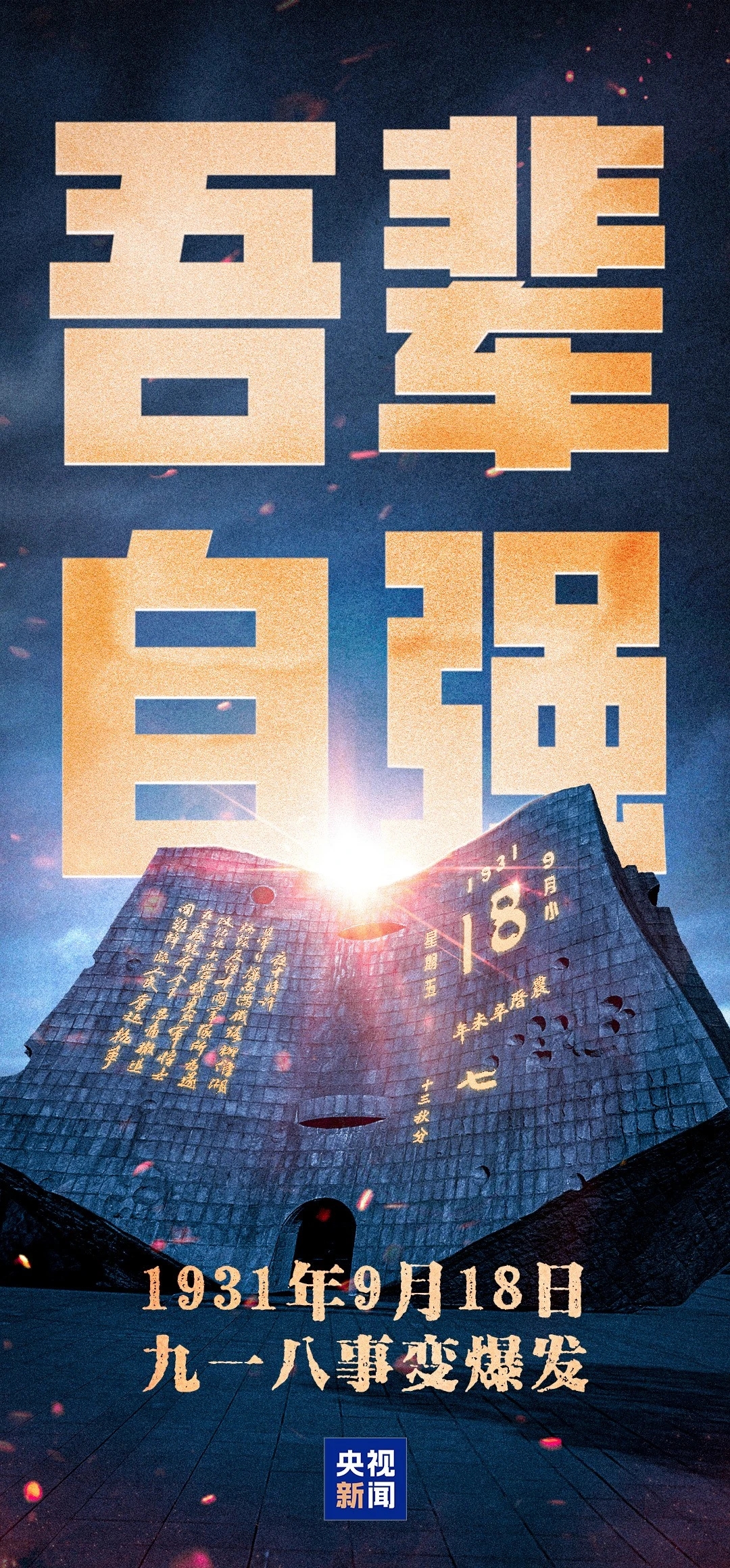On September 18, 1931
The September 18 Incident shocked China and the world
Amidst the mountains and rivers, the Chinese people rose in resistance
Unveiling the prelude to 14 years of war against aggression
It also marked the beginning of the world’s anti-fascist war
We will never forget
Yang Jingyu, who fought alone against the Japanese invaders in the freezing cold
Until his heroic sacrifice
We will never forget
Zhao Yiman, who endured torture without revealing organizational secrets
And was ultimately brutally killed
We will never forget
The five heroes of Langya Mountain, who fired their last bullets
And leapt heroically from the cliff
……
These unyielding spirits and heroic souls will forever be recorded in history
Today, the smoke of battle has cleared
But we have never forgotten those indomitable, fearless struggles
Remember history, forge ahead!
Justice will prevail! Peace will prevail! The people will prevail!
September 18 Incident
The September 18 Incident refers to the 1931 Mukden Incident, a staged event where Japanese forces bombed a railway near Shenyang and falsely blamed Chinese dissidents. This act of sabotage served as the pretext for the Japanese invasion and subsequent occupation of Manchuria, marking a pivotal escalation that led to the Second Sino-Japanese War. It is commemorated annually in China as a National Day of Humiliation.
Yang Jingyu
Yang Jingyu was a prominent Chinese military commander and national hero who fought against the Japanese invasion in the 1930s-40s. He is primarily remembered for his leadership of the Northeast Anti-Japanese United Army in Manchuria. A memorial hall and numerous statues across China honor his legacy of resilience and sacrifice for his country.
Zhao Yiman
Zhao Yiman was a heroic Chinese resistance fighter and communist party member who became a national martyr during the Second Sino-Japanese War. She is remembered for her courageous leadership in guerrilla operations against Japanese forces in Manchuria before being captured, tortured, and executed in 1936. Today, she is a celebrated patriotic figure in China, with memorials, museums, and schools named in her honor.
Langya Mountain
Langya Mountain is a scenic area located in Chuzhou, Anhui Province, China, renowned for its natural beauty and cultural significance. It is famously associated with the ancient text “Records of the Grand Historian” and the proverb “Langya Mountain, a joyous place,” attributed to the Chu emperor. The mountain has been a popular destination for poets, scholars, and tourists for centuries, drawn by its lush forests, tranquil streams, and historic temples.



